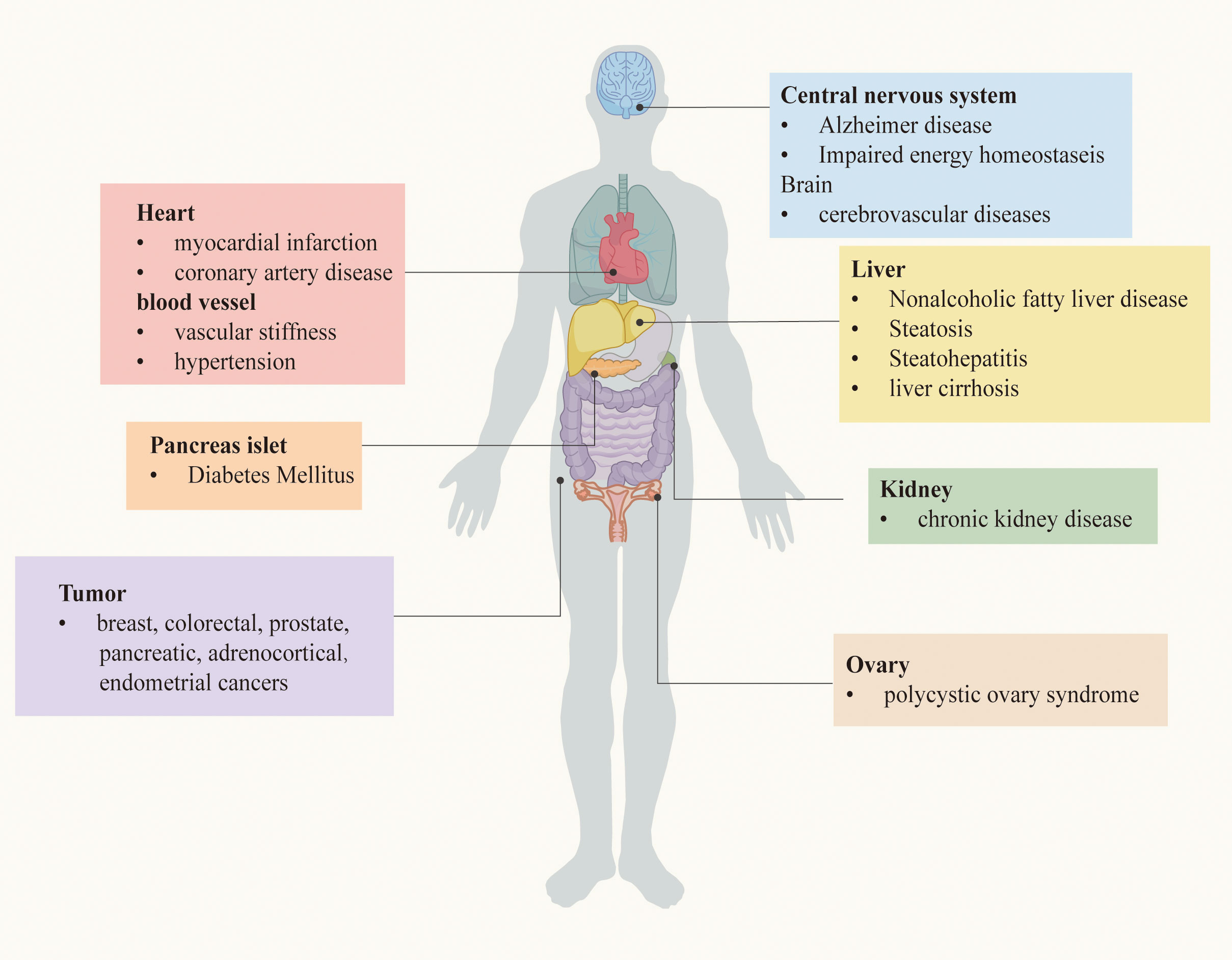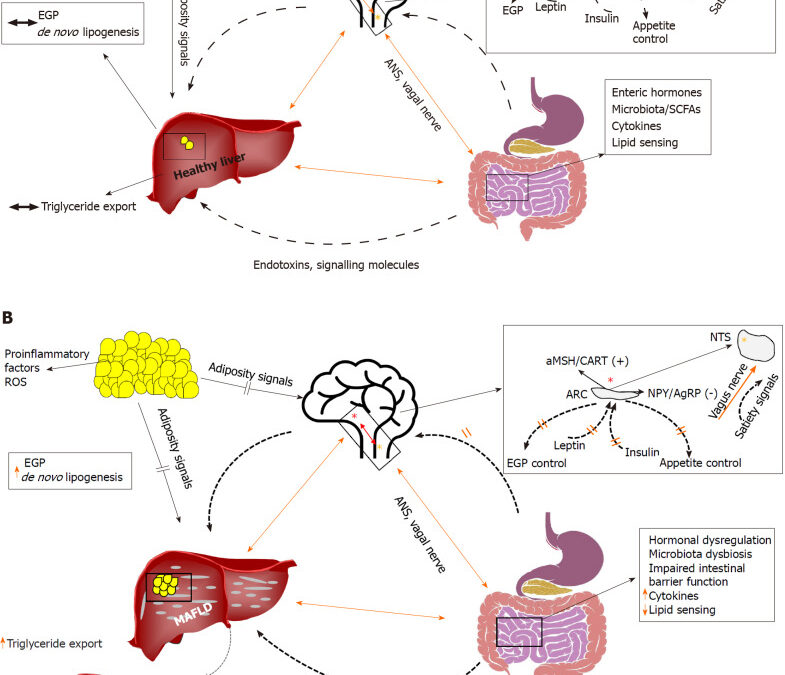Featured Image sourced from “Brain-gut-liver interactions across the spectrum of insulin resistance in metabolic fatty liver disease,” World J Gastroenterol. 2021 Aug 14; 27(30): 4999–5018. Published online 2021 Aug 14. doi: 10.3748/wjg.v27.i30.4999
While glucose response is important, ultimately, it is insulin response and resistance that matters in terms of measuring and monitoring metabolic health. Several key reasons why are listed here:
- Insulin’s Role: Insulin is like a key that unlocks human cells, allowing glucose (sugar) from the bloodstream to enter the cell and be used for energy.
- Resistance Issues: When cells become resistant to insulin, the “key” doesn’t work as well. Glucose builds up in the bloodstream instead of being absorbed by cells, leading to high blood sugar levels.
- Long-Term Impact: Chronically high blood sugar due to insulin resistance can lead to prediabetes and eventually type 2 diabetes. It’s also linked to other health problems like heart disease and fatty liver disease.
- Brain-Gut-Liver Axis: Insulin resistance has a profound impact on the brain-gut-liver axis resulting in metabolic dysregulations linking all three organs.
So, while glucose levels give a snapshot of sugar metabolism in the blood, insulin response and resistance tell the bigger story about how efficiently the body is metabolizing sugars and fostering susceptibility to complex health issues.

Image: “Chronic metabolic diseases may be induced by IR,” from The crucial role and mechanism of insulin resistance in metabolic disease, Front. Endocrinol., 28 March 2023, Sec. Diabetes: Molecular Mechanisms, Volume 14 – 2023 | https://doi.org/10.3389/fendo.2023.1149239
Several dietary trends are likely contributors to the rise of insulin resistance worldwide:
- High-Sugar Diets: Consuming excessive amounts of added sugars and refined carbohydrates (found in white bread, pastries, sugary drinks) leads to frequent blood sugar spikes. Over time, the body struggles to keep up with these demands, leading to insulin resistance.
- Foods Containing Unhealthy Fats: While healthy fats are essential, unhealthy fats (often found in fried and processed foods) can contribute to insulin resistance, especially when combined with high-sugar intake.
- Low-Fiber Diets: Fiber helps regulate blood sugar by slowing down the metabolism of sugars. Diets lacking adequate fiber can lead to blood sugar dysregulation and potentially contribute to insulin resistance.
- Ultraprocessed Foods: Ultraprocessed foods are often high in unhealthy fats, added sugars, refined carbohydrates, and low in fiber – a recipe for blood sugar dysregulation and potential insulin resistance.
It’s important to note that these factors often work together. A diet consistently high in these problematic elements creates a chronic burden on the body’s insulin system, potentially leading to insulin resistance.
Reference:
The crucial role and mechanism of insulin resistance in metabolic disease, Endocrinology, Volume 14 – 2023 | https://doi.org/10.3389/fendo.2023.1149239

